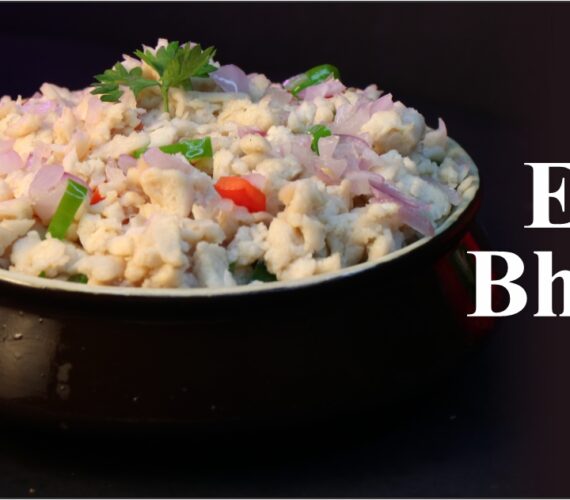Introduction
In recent years, the popularity of plant-based diets has surged, driven by concerns about health, the environment, and animal welfare. As part of this shift, plant-based alternatives to traditional animal-based products have become increasingly prevalent. One such innovation is plant-based chicken, which aims to provide a healthier and more sustainable alternative to conventional poultry. This article explores the concept of plant-based chicken, its nutritional benefits, health considerations, environmental impact, taste and texture, and how you can incorporate it into your diet. Plant Based chicken is healthy and tasty products. Most of the people have question about Is Plant Based Chicken good for you?
What is Plant Based Chicken?
Plant based chicken, also known as meatless or vegan chicken, is a type of food product made entirely from plant sources, with no animal-derived ingredients. It replicates the taste, texture, and appearance of traditional chicken using various plant-based ingredients. The primary goal is to offer consumers a cruelty-free and eco-friendly option while providing a familiar culinary experience. There are some more benefits of plant based chicken.
Nutritional Benefits of Plant Based Chicken
Protein Content
Plant-based chicken products are rich in protein, making them a viable alternative for those seeking non-meat sources of this essential nutrient. Protein is crucial for building and repairing tissues and is an integral part of a balanced diet.
Low Saturated Fat
Unlike conventional chicken, plant-based versions are generally low in saturated fat, which is beneficial for heart health. Consuming less saturated fat can help reduce the risk of cardiovascular diseases.
Zero Cholesterol
Cholesterol is only found in animal-based products, including chicken. Plant-based chicken alternatives are cholesterol-free, promoting better cardiovascular health and blood circulation.
Rich in Fiber and Vitamins
Many plant based chicken products are fortified with essential vitamins and minerals, such as vitamin B12, iron, and zinc. Additionally, these products often contain fiber, contributing to a well-rounded diet.
Health Considerations
While plant-based chicken offers numerous nutritional benefits, there are some health considerations to keep in mind.
Allergies
Individuals with specific food allergies, such as soy or wheat allergies, should check the ingredients of plant-based chicken products carefully to avoid adverse reactions.
Processed Ingredients
Some plant based chicken products may contain processed ingredients to enhance flavor and texture. It’s essential to moderate consumption of heavily processed foods.
Sodium Levels
Certain plant-based chicken products may have higher sodium content, which can be a concern for individuals with hypertension or those aiming to reduce sodium intake.
Synthetic Additives
While plant-based chicken is generally considered safe, some products might contain synthetic additives. Opting for products with minimal additives is advisable.
Environmental Impact of Plant Based Chicken
Reduced Carbon Footprint
Plant-based chicken production results in fewer greenhouse gas emissions, contributing to climate change mitigation.
Water Conservation
Compared to conventional chicken farming, plant-based alternatives require significantly less water, helping conserve this valuable resource.
Land Use
Plant-based chicken production demands less land, reducing deforestation and preserving natural habitats.
Animal Welfare
By opting for plant-based chicken, consumers contribute to reducing the demand for factory farming and support more ethical treatment of animals.
Taste and Texture
Advancements in food technology have led to significant improvements in the taste and texture of plant-based chicken.
Advancements in Flavor
Plant-based chicken products now offer a variety of flavors, catering to different tastes and culinary preferences.
Texture Evolution
Manufacturers have worked to achieve a texture similar to traditional chicken, making the transition to plant-based options more seamless for consumers.
Incorporating Plant-Based Chicken into Your Diet
Meal Ideas
Plant-based chicken can be used in a wide array of recipes, including sandwiches, stir-fries, salads, and more.
Culinary Versatility
Its adaptability makes it a suitable ingredient for both traditional and innovative dishes, making plant-based diets more exciting.
Making Informed Choices
When choosing plant-based chicken products, consider the following tips:
Reading Labels
Thoroughly read product labels to understand the ingredients and nutritional content.
Identifying Nutrient Sources
Choose products fortified with essential nutrients like vitamin B12, iron, and zinc.
Choosing Quality Brands
Opt for reputable brands that prioritize quality and use natural ingredients.
Common Myths and Misconceptions
Lack of Protein
Contrary to the belief that plant-based chicken lacks protein, these products are often rich in this vital nutrient.
Highly Processed
While some plant-based products are processed, not all fall into this category. Choose minimally processed options when possible.
Inferior Taste
The taste of plant-based chicken has improved significantly, with many products rivaling traditional chicken in flavor.
Conclusion
Plant-based chicken offers a promising alternative to conventional poultry, delivering a host of nutritional benefits while significantly reducing its environmental impact. With advancements in taste and texture, this innovative product appeals to both health-conscious individuals and environmentally conscious consumers. By incorporating plant-based chicken into your diet and making informed choices, you can contribute to a more sustainable and compassionate food system.
FAQs
Is plant-based chicken a good source of protein for athletes?
- Yes, plant-based chicken is a suitable protein source for athletes, providing essential amino acids for muscle recovery and growth.
Can plant-based chicken be a part of a weight loss diet?
- Absolutely, as it is lower in saturated fat and calories compared to conventional chicken, making it a healthier option for those aiming to lose weight.
What are the main ingredients in plant based chicken products?
- The main ingredients can vary but often include soy protein, wheat gluten, pea protein, and various spices and flavorings.
Are plant-based chicken products suitable for people with gluten intolerance?
- Not all plant-based chicken products are gluten-free, so individuals with gluten intolerance should check the labels for potential allergens.
How does the environmental impact of plant-based chicken compare to traditional chicken?
- Plant-based chicken has a significantly lower environmental impact, with reduced carbon emissions, water usage, and land footprint compared to traditional chicken farming.








